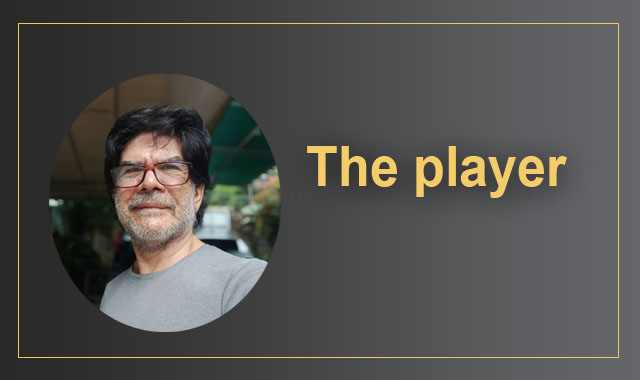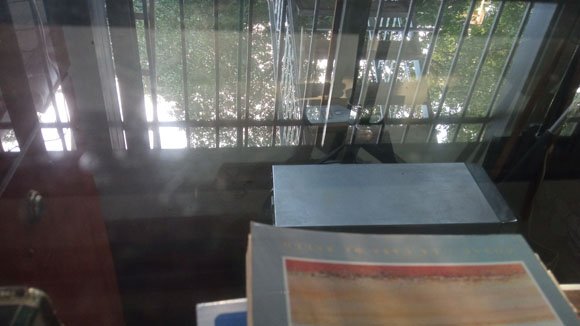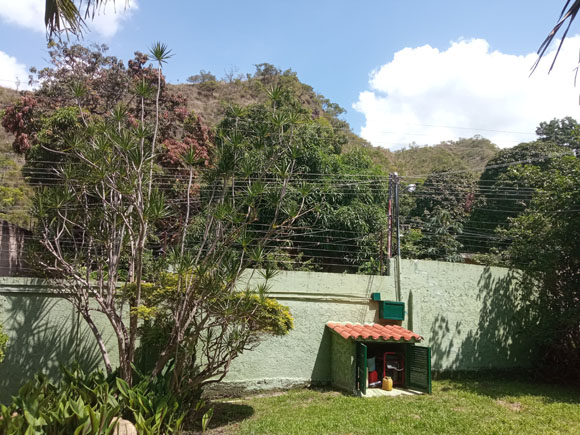
My father loved telling stories; he was very good at it. He always had a story at the ready, on the most diverse and strange topics. Sometimes he would combine real-life events with details from his imagination.
One of the many stories I heard him tell many times was when he tried to become a jockey at an old racetrack that Caracas had in the “Paraíso” area.
Apparently, my father had been trying for several years, and he had what it took to make a career in the difficult art of riding racehorses. My father loved horses and the atmosphere of the racetrack, everything related to betting and the thrill of winning races. Whenever he talked about his time as a jockey, he did so with great passion.
But something happened when he was about to make his debut as a professional jockey. There were several versions of the story, but the one he repeated most often was that he had an accident that kept him off the track. Another version, which I heard from one of his brothers, says that the reason for his departure was his attempt to win over a woman.
In any case, the truth is that after that time, my father lost his interest in horses, never visited the racetrack again, and never placed any bets.

But somehow those stories of racetracks, horses, and betting remained in my memory, lying dormant somewhere until I was thirteen or fourteen, when they reawakened with considerable force.
I was in my second or third year of high school when I met a boy who was very different from the others. He was a little older than me, and his favorite topic of conversation was horse racing.
That boy was a walking encyclopedia. He always had a copy of the “Gaceta Hípica” in his back pocket, a small magazine that came out every week with information about the races that would be held at the racetrack.
The boy spoke quite fluently about any statistics. He knew all the names of the jockeys, as well as the horses, both male and female.
The gazette was published on Monday morning, and from Tuesday onwards, that boy began to make predictions. I found that really impressive.
Once he came to school promoting bets in a format called Dupletas. The odds of winning were really difficult because you had to pick the first two in a race, regardless of the order, but they had to finish in the top two places.
Every Tuesday, the boy would start convincing us to place our bets. He calmly explained the prizes to us: if the horses were favorites, the most they would pay out would be two to one, while those with fewer chances could pay out as much as twenty to one.

In the end, that boy managed to convince us to place our small bets, which in most cases were five cents, enough to pay for a bus ticket.
As expected, most of us lost our money. There were many days when we went without lunch or had to walk long distances because we had invested our bus fare and breakfast money in those horse bets.
But the temptation to see how it would turn out next time was too great. On Monday mornings, before class, that boy would arrive with a bag full of coins and hand them out to the lucky few who had guessed correctly in the races.
The amazing thing was that everyone was satisfied; no one ever accused him of cheating or of giving less money than he owed as the winner.
I must admit that those small bets had become an addiction for me. I even lost weight because I was betting my breakfast money. I remember that in all that time, I won two or three times at most.
Fortunately, after the third year, I changed high schools and cities, and I never heard from that boy again.
I don't know what made me reflect, but after those years I understood that gambling attracted me a lot and that I couldn't neglect it. At some point I realized that I had to stay away from that temptation, and in the end I think I succeeded. I reached the age of seventy without ever betting again.
Thank you for your time.
Translated with DeepL.com (free version)





Logo creado por @themanualbot



